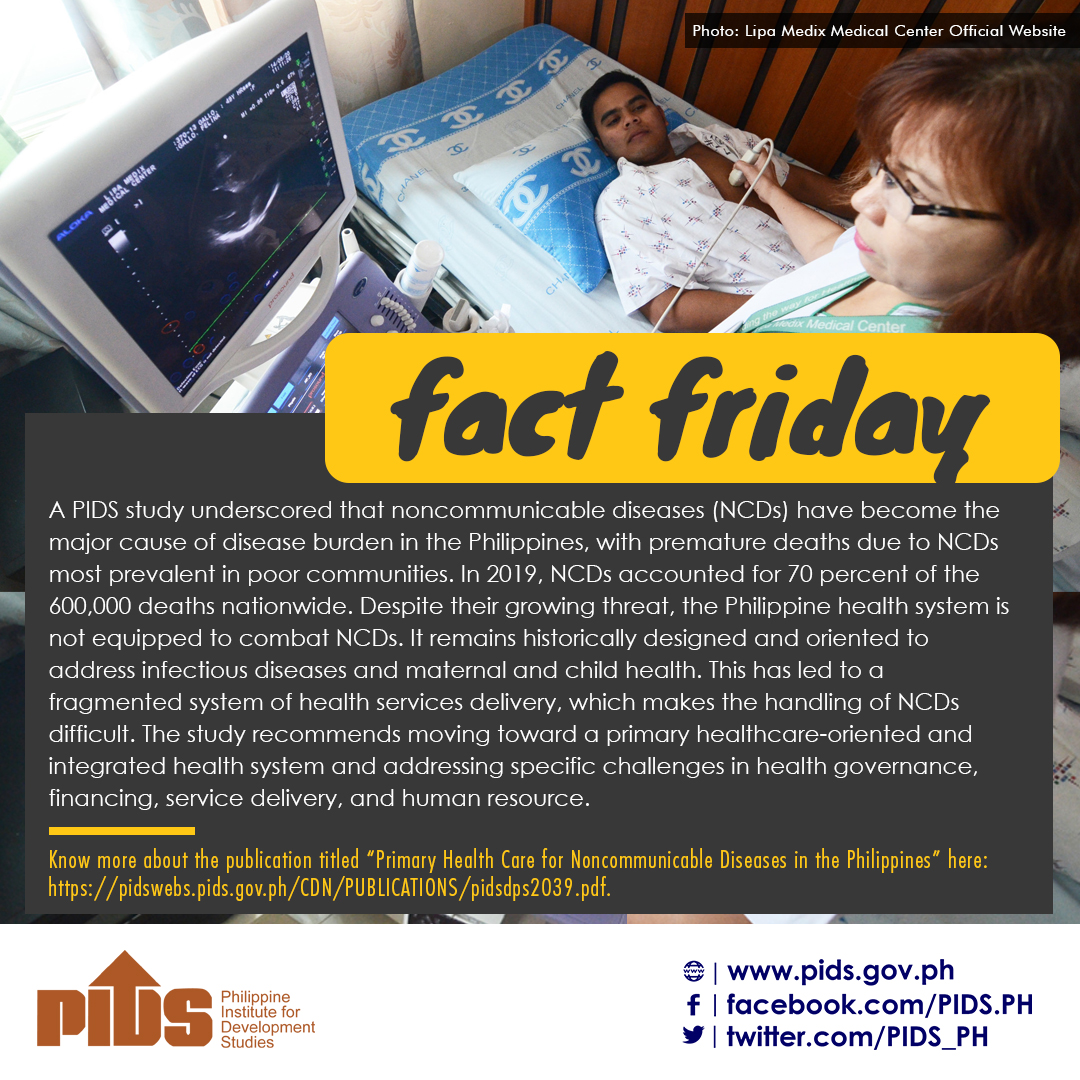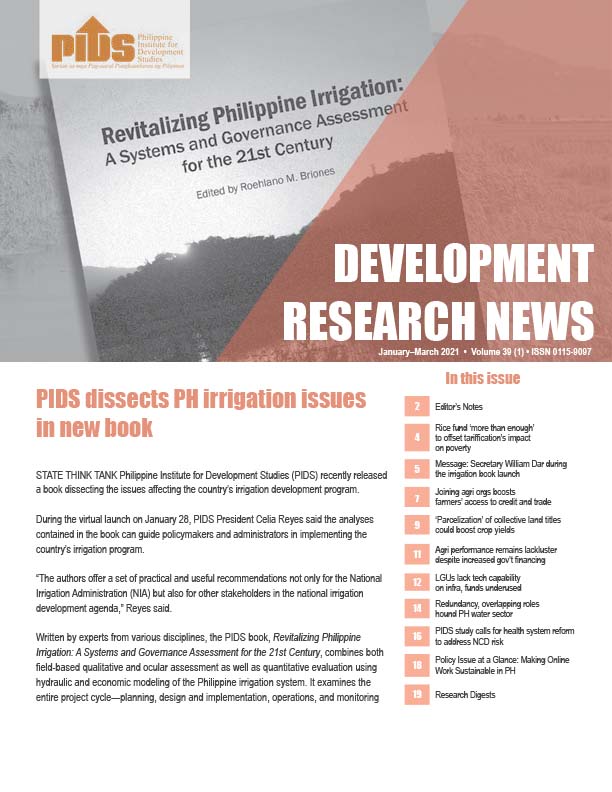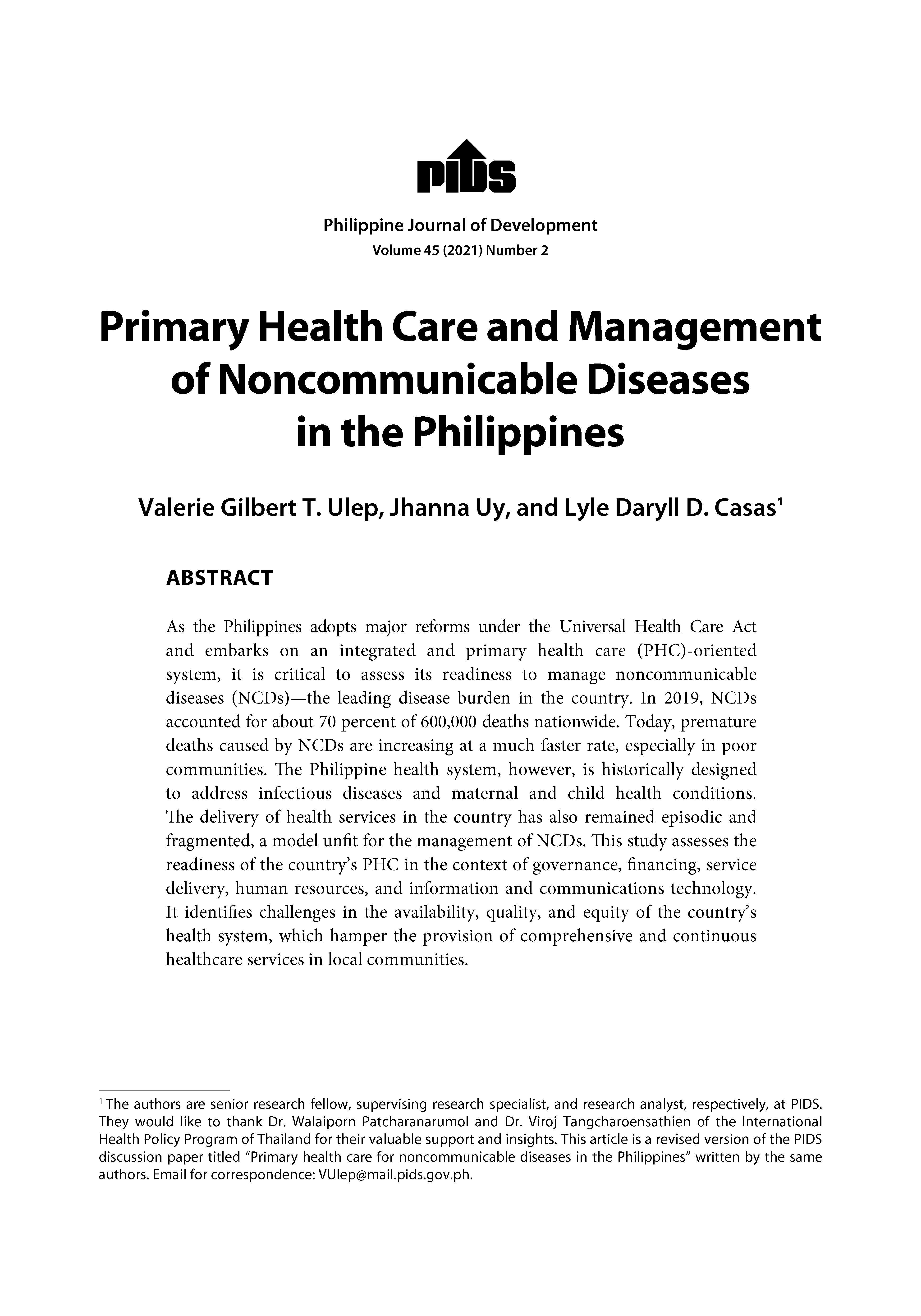
Hello, PIDS friends! Here's our #FactFriday for the week on noncommunicable diseases.
A PIDS study underscored that noncommunicable diseases (NCDs) have become the major cause of disease burden in the Philippines, with premature deaths due to NCDs most prevalent in poor communities. In 2019, NCDs accounted for about 70 percent of the 600,000 deaths nationwide. Despite their growing threat, the Philippine health system is not equipped to combat NCDs. It remains historically designed and oriented to address infectious diseases and maternal and child health. This has led to a fragmented system of health services delivery, which makes the handling of NCDs difficult. The study recommends moving toward a primary healthcare-oriented and integrated health system and addressing specific challenges in health governance, financing, service delivery, and human resource.
Know more about the publication titled “Primary Health Care for Noncommunicable Diseases in the Philippines” here: https://pidswebs.pids.gov.ph/.../PUBLICAT.../pidsdps2039.pdf.
A PIDS study underscored that noncommunicable diseases (NCDs) have become the major cause of disease burden in the Philippines, with premature deaths due to NCDs most prevalent in poor communities. In 2019, NCDs accounted for about 70 percent of the 600,000 deaths nationwide. Despite their growing threat, the Philippine health system is not equipped to combat NCDs. It remains historically designed and oriented to address infectious diseases and maternal and child health. This has led to a fragmented system of health services delivery, which makes the handling of NCDs difficult. The study recommends moving toward a primary healthcare-oriented and integrated health system and addressing specific challenges in health governance, financing, service delivery, and human resource.
Know more about the publication titled “Primary Health Care for Noncommunicable Diseases in the Philippines” here: https://pidswebs.pids.gov.ph/.../PUBLICAT.../pidsdps2039.pdf.
Gallery Images:








